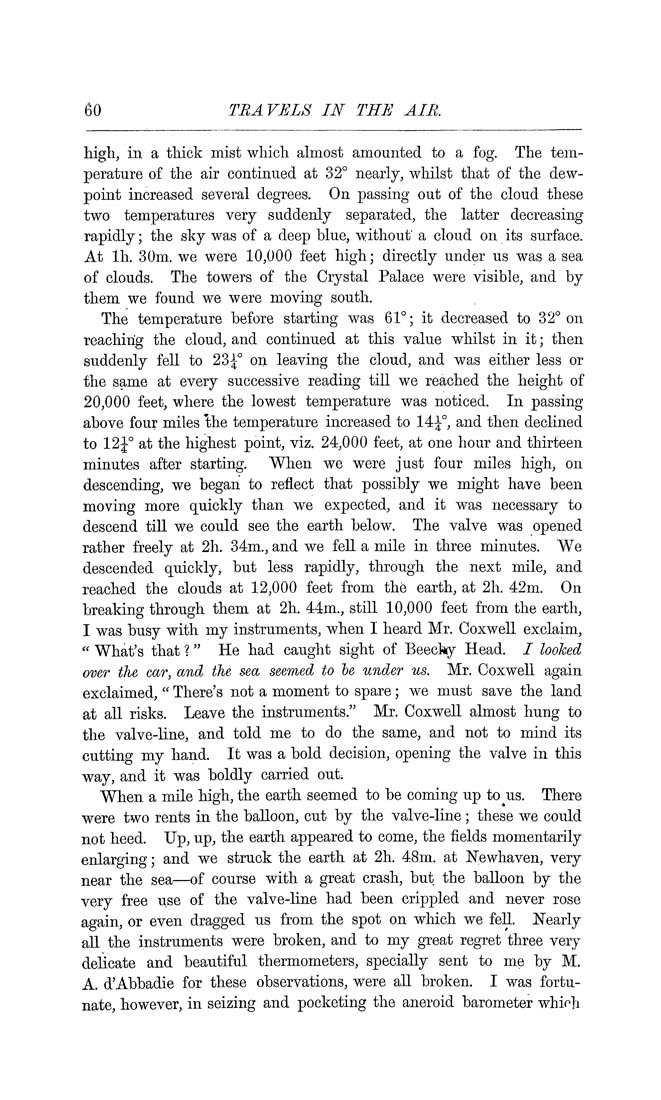60 TRAVELS IN THE AIR.
high, in a thick mist which almost amounted to a fog. The tem¬
perature of the air continued at 32° nearly, whilst that of the dew-
point increased several degrees. On passing out of the cloud these
two temperatures very suddenly separated, the latter decreasing
rapidly; the sky was of a deep blue, without' a cloud on its surface.
At 111. 30m. we were 10,000 feet high; directly under us was a sea
of clouds. The towers of the Crystal Palace were visible, and by
them we found we were moving south.
The temperature before starting was 61°; it decreased to 32° on
reaching the cloud, and continued at this value whilst in it; then
suddenly fell to 23|° on leaving the cloud, and was either less or
the same at every successive reading till we reached the height of
20,000 feet, where the lowest temperature was noticed. In passing
above four miles llie temperature increased to 14^°, and then declined
to 12J° at the highest point, viz. 24,000 feet, at one hour and thirteen
minutes after starting. When we were just four miles high, on
descending, we began to reflect that possibly we might have been
moving more quickly than we expected, and it was necessary to
descend till we could see the earth below. The valve was opened
rather freely at 2h. 34m., and we fell a mile in three minutes. We
descended quickly, but less rapidly, through the next mile, and
reached the clouds at 12,000 feet from the earth, at 2h. 42m. On
breaking through them at 2h. 44m., stiU 10,000 feet from the earth,
I was busy with my instruments, when I heard Mr. Coxwell exclaim,
" What's that ?" He had caught sight of Beecky Head. / looked
over the car, and the sea seemed to he under us. Mr. Coxwell again
exclaimed, " There's not a moment to spare; we must save the land
at all risks. Leave the instruments." Mr. Coxwell almost hung to
the valve-line, and told me to do the same, and not to mind its
cutting my hand. It was a bold decision, opening the valve in this
way, and it was boldly carried out.
When a mile high, the earth seemed to be coming up to^us. There
were two rents in the balloon, cut by the valve-line ; these we could
not heed. Up, up, the earth appeared to come, the fields momentarily
enlarging; and we struck the earth at 2h. 48m. at JSTewhaven, very
near the sea—of course with a great crash, but the balloon by the
very free use of the valve-line had been crippled and never rose
again, or even dragged us from the spot on which we fell. I^early
aU the instruments were broken, and to my great regret three very
delicate and beautiful thermometers, specially sent to me by M.
A. d'Abbadie for these observations, were aU broken. I was fortu¬
nate, however, in seizing and pocketing the aneroid barometer which
|








